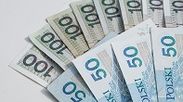Analysis 1/2017: Privatization of the Pekao Bank - the myth of "garage sale."

Synthesis
On the occasion of "repolonization" or "domestication" of the Pekao Bank by PZU (General Insurance Company) and the Polish Development Fund (PFR), there appeared among the publicists and even economists, voices that the earlier privatization of this bank was a very good business for UniCredit (due to allegedly underestimated valuation). UniCredit, which bought more than 50 percent of the bank's shares for about PLN 4 000 million in 1999, now sells less than 33 percent for PLN 10 600 million, while having received over a dozen thousand million zlotys in dividends. Accordingly, in various publications, we can read that seventeen years ago it supposedly was "looting", and now "we buy back too high" what we "sold [...] too low" during the "garage sale."
But was it really? Was the price that UniCredit paid at that time actually a bargain? And for these 17 years, in the very structure of the bank and the economic reality surrounding us, nothing changed that could affect the valuation of the bank? The answers to these questions are important because the argument about the underestimation of the companies sold by the state is the chief weapon of critics of Polish transformation, claiming the "thievery" of privatization.
In order to properly compare Pekao's privatization with the acquisition of the bank by PZU and PFR consortium, the following should be taken into account:
- Prices set in transactions and relevant share prices;
- Inflation, whose cumulative rate since mid-1999 was 64.6 percent;
- Pekao's recapitalization of UniCredit in December 2000;
- The value of incorporating 285 BPH branches into the structure of Pekao at the end of 2007;
- Pekao's equity increase for the last 17.5 years in relation to the two operations above and reinvestment of some of the profits.
Having considered this, we note that:
- In 1999, UniCredit paid for one share of Pekao a price that was over 15 percent higher than the then-stock price and now resells those shares at a price close to the current price.
- For the last 17.5 years UniCredit has invested a total of PLN 15700 thousand million in nominal terms or PLN 20200 thousand million after inflation;
- At the price specified in the privatization agreement, the P/BV ratio (showing how much the investor pays for one zloty of net assets corresponding to equity) was 2.2 and now stands at 1.5, i.e., for one zloty of net assets UniCredit paid more time than it now receives.
- Pekao's equity increased by 498 percent in nominal terms in the last 17.5 years or by 264 percent after inflation.
An accurate analysis shows that, contrary to the disturbing theses, we have no reason to conclude that in 1999 the State Treasury sold Pekao as "for a pittance." On the contrary, the price fixed in the privatization agreement was beneficial mainly to the seller, not to the buyer, i.e., UniCredit. The difference between the purchase price of Pekao by UniCredit in 1999 and the sales price of subsequent blocks of shares by the Italian company, culminating in a transaction with the consortium of PZU and PFR, can be fully explained by the development of the bank and the inflation in Poland. Also, the average annual return on Pekao shares for UniCredit was only slightly higher than the average annual return on the sectoral stock exchange index WIG-banki.
Full analysis by FOR (in Polish) aviliable here.
You are welcome to contact our expert:
Marcin Zieliński, Economist, Mises Institute
e-mail: [email protected]
Files to download

